- Editorial Offices
- 203 Brantly Hall
- Missoula, MT 59812
- (406) 243-2488
- themontanan@umontana.edu
Moxie at 50
When the UM Advocates lead others ̶ they find passion and purpose.
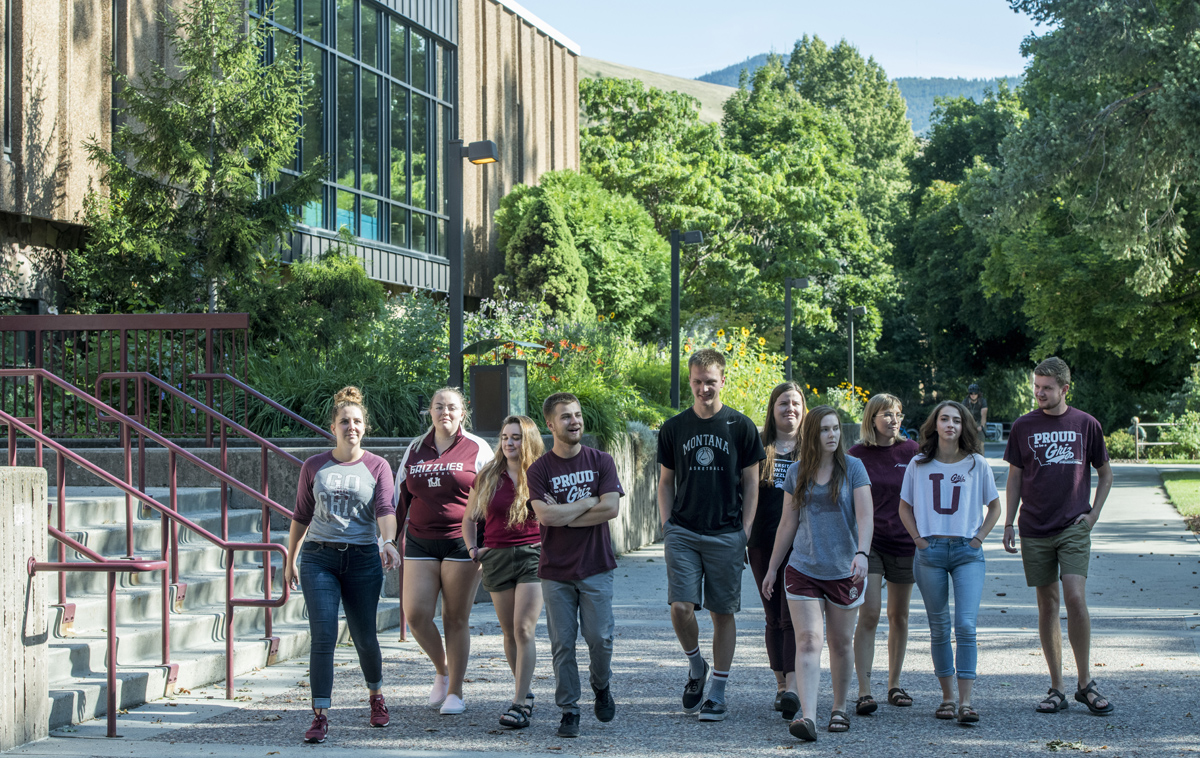
Kari Swartz Dilloo still fully embraces her identity as a member of the UM Advocates even though she graduated from the University of Montana more than 20 years ago.
Dilloo left Missoula right after graduation for the big-city opportunities of Seattle. She is now the chief marketing director for Microsoft’s Xbox.
She says her time being a UM Advocate helped to shape the leadership skills she’s built her success upon.
“It taught me how to rally other people,” Dilloo says. “In business you can’t be successful on your own. And what Advocates really taught me is how to work within a team and inspire people to do their best.”
The UM Advocates program, which promotes the University through campus tours, orientation activities, social gatherings and community volunteerism, celebrates its 50th anniversary this year. The storied program has inspired students like Dilloo to thrive as college ambassadors and, in turn, become well-rounded citizens of the world.
Each new generation features a diverse group of students, representing a wide range of majors and backgrounds. The program has cultivated a long-standing reputation as a welcoming connector between alumni, students, prospective students, staff and instructors with the larger Missoula community. For current Advocates and former Advocates like Dilloo, what makes the program unique isn't just its activities, but its core attitude and philosophy.
“There was a code of conduct for Advocates,” Dilloo says. “It was this rallying cry of 'moxie.' As an Advocate you are positive and proactive, and you brought that special sauce that allows you to navigate any experience. It didn't matter if you were having a conversation with prospective students or if you were at a football game talking with alumni of a different generation. It was about how you represented yourself and how, in turn, you represented the University. And that was something we took pretty seriously.”
The advocate group was formed in 1969 by the alumni office as a direct reaction to the University’s reputation as a protest school. At the time, the UM was often referred to as the “Berkeley of the Rockies” because of its counterculture atmosphere. As a school of humanities, it was the perfect venue for heated and often polarized debates in the face of the Vietnam War. The gap of understanding between baby boomer students and alumni of the “greatest generation” was widening, and it only grew more intense after the Kent State shootings and subsequent protests on campuses across the country. UM needed to find a way create common ground.
“The alumni director at the time came up with the idea of sending some of our students out to represent the University,” says Jed Liston, director of UM Alumni Relations. “The University wanted to get the message out that, 'Hey, while we may have these new ideas, we’re still Montana kids. We still share these same ideals as the older generation.'”
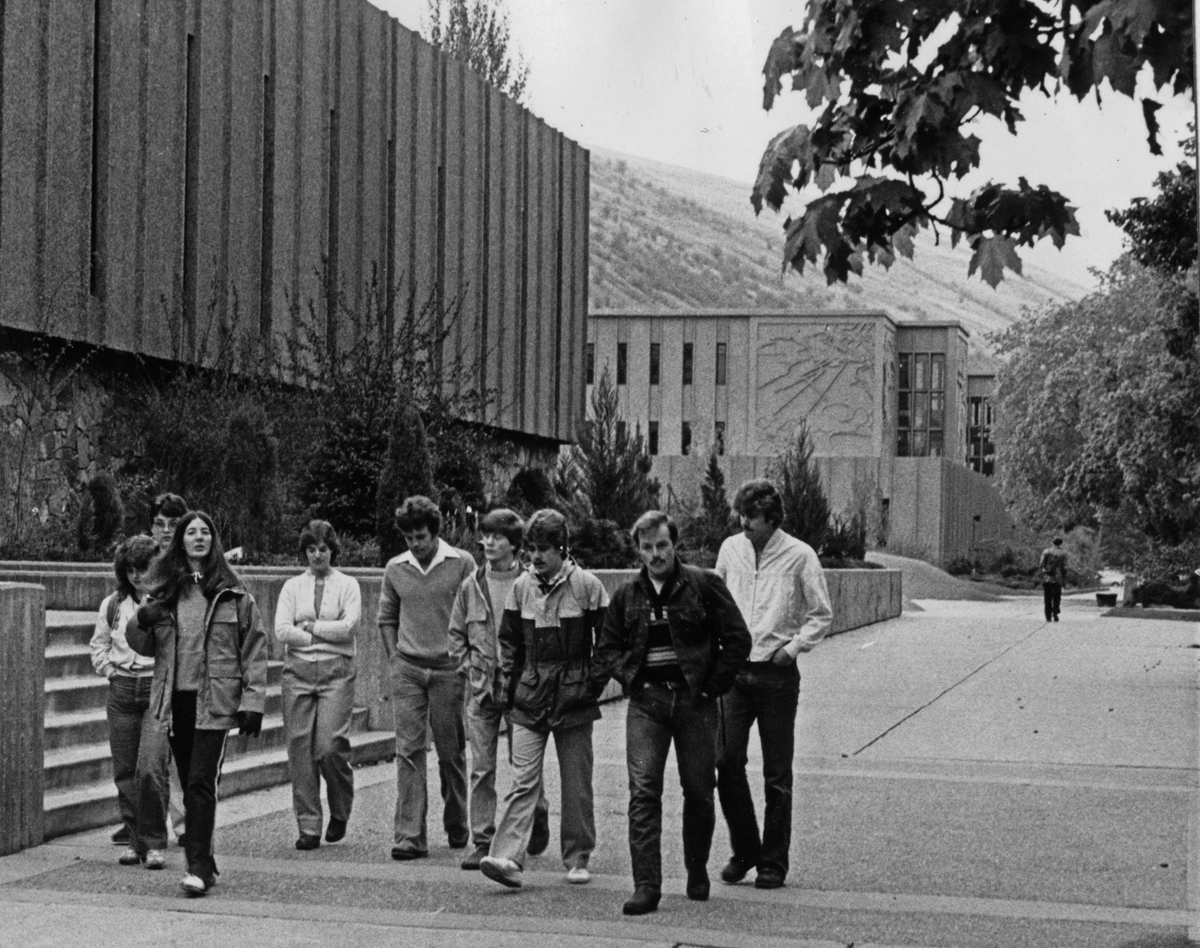
For a couple of years, the UM Advocates group was like a student speakers bureau for UM, Liston says. But its role under original Director Deanna Sheriff became even more practical when the model for Montana's higher education system changed so that funding was directly based on enrollment.
“That was the birth of recruitment,” Liston says. “The Advocates were tapped at that point because they were trained to give presentations, they were trained to talk positively about the University, and they were charged with going out to the high schools to recruit.”
It worked for Montana high school students like Liston. In 1978, the year after a group of UM Advocates showed up at Helena High School, Liston joined the group as a freshman at UM.
“I was really impressed with how much they knew about the campus and how excited they were,” he says.
The UM Advocates were distinctive because other schools across the country had nothing like it. Liston recalls representing the school with fellow student advocate Dan O’Fallon at a recruitment fair in Chicago. He remembers they were the He remembers they were the only young students there among the sea of middle-aged and silver-haired recruiters, and their mere presence created a buzz among both prospective students and admissions representatives from other schools.
UM continued to utilize its student representatives.
“Other admissions people kept asking what we were doing differently,” Liston says. “But we just did what we’ve always done: We engaged with the students, and they related to us because we were just like them.”
Over the years the Advocates became indispensable to the University, but the internal culture they developed was equally important. The process of getting in was rigorous — multiple interviews, mock presentations, in-depth written applications — so when you were selected, it was a high honor induction into a tight-knit group.
But the hard work was rewarded. Advocates had notoriety on campus and were a forever family. Hours spent on planning and leading Orientation led to floats on the river after a full day of work. Liston, who would eventually become an Advocate coordinator, helped solidify the group's motto: Sierve diende celebra, meaning “serve then celebrate.”
Karissa Drye, who is now the operations and program director for the affordable housing nonprofit Homeword in Missoula, was accepted into UM Advocates in 2002. For her, the “serve then celebrate” motto had a major impact on her experience and gave her skills for the nonprofit world. Advocates maintain their position by receiving points through volunteering with, for instance, the Alumni Association or the Office of the President. But they also work off campus cleaning up sections of highway, taking care of animals at the Humane Society and serving meals at the Poverello Center.
“Being able to be ambassadors out in the community, I think that benefits the University as well,” she said. “We were out there not to promote ourselves but just to do some good.”
On campus, Advocates received intense training, which prepared them to navigate serious student issues and helped them remain unflappable even while not taking themselves too seriously.
Gillian Glaes was accepted into the UM Advocates program around the same time as Dilloo in the mid-1990s. Like so many future Advocates, she was looking for a place to belong and a platform to come out of her shell.
“I think it really shaped my college experience in profound ways and also helped me to work on some skills I was a little deficient in, like public speaking,” Glaes says. “It was always a joy to share my experience at UM with prospective students and their parents. I really appreciated that.”
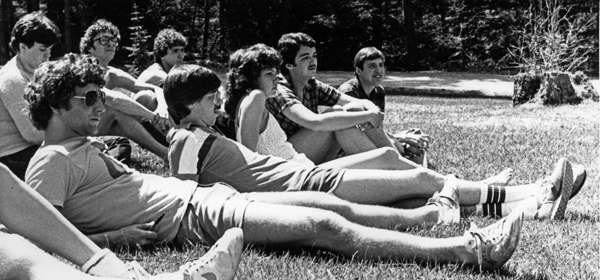
Now in her fifth year as a visiting professor of history at UM and director of the Humanities Institute, Glaes still sees campus through the lens of an Advocate. She is always looking for ways to make connections with prospective students who might be interested in history. She sees her job through the perspective of faculty, students and staff because UM Advocates instilled the idea of understanding those perspectives.
“I don’t think there’s a more authentic way to represent a university than through the eyes of the students who go there,” she says.
The UM Advocates has articulated the magic of its organization through the word “moxie,” which every advocate brandishes in their vocabulary.
It's a word the second director of UM Advocates, the late Frank Matule, started using as a way to identify the groups’ style and approach. Over the years, the UM Advocates has changed its meeting location, shifted focus and revamped its campus orientation strategies, but the “moxie” part has never wavered.
Jack Whittle, one of UM’s current Advocate coordinators, still sees moxie as the critical ingredient for the longstanding and beloved program. Just like Liston, Whittle has traveled to prospective student events to recruit new students.
Whittle and his fellow coordinators will help welcome former Advocates returning for the group’s 50th anniversary, for which they collected historical photos and stories. He said it's important to have a sense of where the Advocates came from and where they want to go from here.
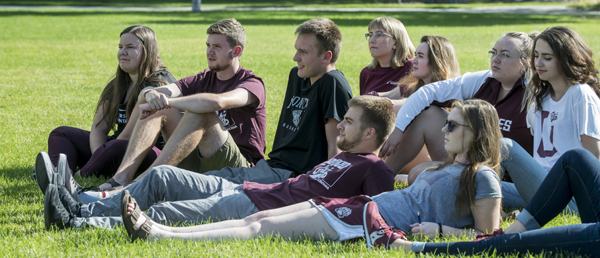
The program has changed, and Whittle says that’s partly because his peers wanted to provide a more inclusive environment. The application process, for instance, is still rigorous, but it also builds in the concept that people skills might be able to develop over time.
“I felt like there were so many people that could grow to become great Advocates,” he says. “We made it more open, more accessible, changed the recruitment process, changed the application, got more in-depth about it. We look at applicants as a holistic person and their potential to be a campus leader and grow.”
Campus tours have also shifted from just showing-off buildings and reciting University history to focusing on how every student can succeed. The UM Advocates now share information that’s a hybrid of campus history, student experiences and academic prowess.
“Now it’s more like this is why UM is special, this is why and how you will be successful while also incorporating our own student experiences,” Whittle says.
For Whittle, being an advocate is crucial to that experience, just like it was for Liston, who met his wife, Jorrun Fallan, in the UM Advocates. Now their children are in the group along with Dilloo's niece.
The UM Advocates began with the idea that there's almost nothing more powerful than when people can find common ground. Even as social media becomes central to conversation, the group has reinforced the idea that face-to-face time — on a campus tour, during a recruitment fair, at a spring fling — has a lasting impact. Recently, former Advocates participated in a letter-writing campaign to prospective students. There is some quantifiable evidence it made a difference in enrollment, but the anecdotes were prominent: Prospective students appreciated the personal touch. It made UM stand out.
“I think at this really critical moment for UM, I hope that everyone recognizes the important role the Advocates have played and do play and can play in really shaping the future of UM,” Glaes says. “I think it’s a really exciting moment to mark the 50th anniversary but also to reflect on how the organization can continue to change its role as we enter this new era.”
Editor’s note: The Montanan extends our deepest gratitude to the thousands of UM students who have served as Advocates since 1969. While we couldn’t possibly print every experience or memory, we do encourage readers to send on their UM Advocate stories and memories to themontanan@umontana.edu.
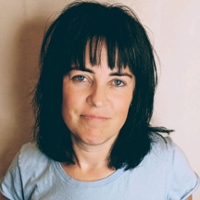
Story by: Erika Fredrickson
Erika Fredrickson is a freelance journalist based in Missoula. She graduated from UM’s Creative Writing Program in 1999 and earned a master’s degree in environmental studies in 2009.




